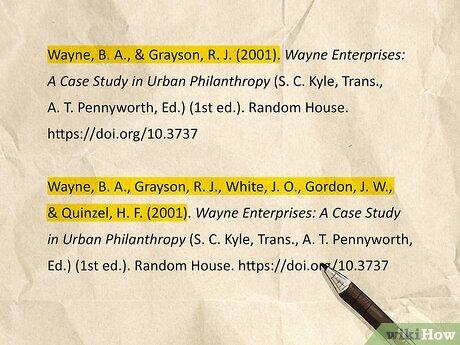Revolutionizing Vaccine Distribution and Health Financing in Africa Amid Escalating Public Debt: A Critical Global Health Challenge
In the aftermath of the COVID-19 crisis, nations around the world continue to wrestle with formidable obstacles in vaccine distribution and healthcare financing. This challenge is especially pronounced across Africa, where surging public debt levels severely restrict governments’ ability to strengthen health infrastructures. Many African countries are caught between the urgent need to immunize their populations and financial constraints that jeopardize both immediate pandemic responses and long-term health objectives. This article explores the evolving landscape of vaccination efforts on the continent, emphasizing how international cooperation, innovative funding strategies, and sustainable health policies intersect within a region rich in potential yet often sidelined in global health discussions. The well-being of millions depends on strategic alliances and visionary policymaking as leaders navigate these complex dynamics.
Navigating Vaccine Distribution Barriers Amid Rising Public Debt Across African Nations
The sharp increase in public debt across numerous African countries poses a significant risk to effective vaccination campaigns critical for controlling infectious diseases. Governments overwhelmed by growing financial obligations frequently must reallocate funds away from essential vaccine procurement, cold chain logistics, and community engagement programs. As a result, vital immunization initiatives face setbacks that could lead to outbreaks of preventable diseases such as measles or polio alongside emerging COVID-19 variants.
Several key challenges intensify this situation:
- Higher borrowing costs: Increasing interest rates limit fiscal flexibility.
- Reduced foreign aid: Donor fatigue amid multiple global emergencies shrinks available funding.
- Competing national priorities: Economic pressures push governments toward short-term expenditures at the expense of preventive healthcare investments.
To mitigate these hurdles, new approaches focus on leveraging innovative financing combined with robust partnerships involving international organizations and private sector stakeholders. For example, enhancing domestic vaccine manufacturing capabilities not only reduces dependency on imports but also stimulates growth within regional pharmaceutical industries-an approach gaining traction amid recent successes like Senegal’s expanded production lines.
| Strategy | Expected Outcome |
|---|---|
| Public-Private Partnerships | Enhanced resource mobilization coupled with operational efficiency gains |
| Domiciled Vaccine Production Initiatives | Easier local access; cost reductions over time through economies of scale |
| Sovereign Debt Relief Programs | Liberation of budgetary resources earmarked for healthcare investment priorities |
Innovative Financing Solutions To Broaden Vaccine Access And Foster Equity Across Africa
Africa’s ongoing struggle to achieve comprehensive vaccine coverage amidst ballooning debts necessitates fresh financial models centered on equity-driven principles. Increasingly adopted are dynamic frameworks such as strong public-private collaborations that amalgamate capital from diverse sources-including governments partnering with multinational corporations or philanthropic entities-to ensure reliable supply chains while reinforcing local healthcare infrastructure.
Financial instruments like social impact bonds have emerged as promising mechanisms aligning investor returns directly with measurable improvements in population health metrics. Although initially complex, these tools can unlock previously untapped capital dedicated exclusively toward equitable immunization efforts.
Additional tactics involve tiered pricing schemes where pharmaceutical companies adjust costs based on national income brackets-balancing affordability without compromising industry viability. Addressing sociocultural barriers through culturally sensitive education campaigns remains crucial for overcoming vaccine hesitancy prevalent among certain communities skeptical about immunizations.
A comprehensive funding ecosystem integrating international grants, targeted debt restructuring aimed at expanding fiscal space for health spending, alongside philanthropic contributions is indispensable if equitable access is ever going to be realized continent-wide.
Strengthening Collaborations For Sustainable Health Financing In Africa: Pathways To Resilience Â
Given the intricate nature of healthcare financing challenges exacerbated by rising sovereign debts throughout African nations, collaborative frameworks warrant prioritization as powerful vehicles capable of amplifying resource mobilization supporting vaccination initiatives.
Core components underpinning this strategy include:
- Nurturing Robust Public-Private Partnerships: Pooling expertise across sectors fosters shared accountability while maximizing efficient use of resources.
- Pursuing Regional Integration Efforts: Cross-border alliances facilitate knowledge sharing regarding best practices plus streamlined logistics management enhancing program reach.
- Pioneering Novel Funding Mechanisms: Exploring options such as blended finance structures or social impact bonds diversifies revenue streams dedicated solely towards immunization goals.
Transparent engagement around debt-related constraints-including open discussions about restructuring possibilities-and prioritizing budget allocations favoring health expenditures remain vital moving forward. Leveraging data analytics enables governments to forecast demand accurately thereby optimizing procurement cycles.
The pursuit of external funding avenues-including global grants from organizations like Gavi or The Global Fund-further supplements domestic budgets enabling broader coverage.
A recent analysis highlighted several promising financial interventions:
| Tactical Financial Initiative                 | Main Expected Result                |
|---|---|
| Debt Restructuring Programs                                              | Expanded fiscal capacity allocated towards healthcare services                             |
| Investment In Strengthening Local Healthcare Systems           | Improved effectiveness delivering vaccines directly into communities       |
|
By fostering unified action among governments and partners alike, African countries stand poised not only to overcome current hurdles but also establish durable foundations ensuring consistent access to vaccines-and ultimately enhanced population health outcomes. Final Thoughts: A Call For Global Solidarity And Local Resilience In Achieving Vaccine EquityAs global public health landscapes rapidly evolve post-pandemic,Africa’s intersection between mounting public debt pressures and urgent vaccination demands underscores an unprecedented need for innovation within financing paradigms.The fragility revealed by inconsistent vaccine availability combined with constrained budgets threatens hard-earned progress against infectious diseases throughout the continent. |







